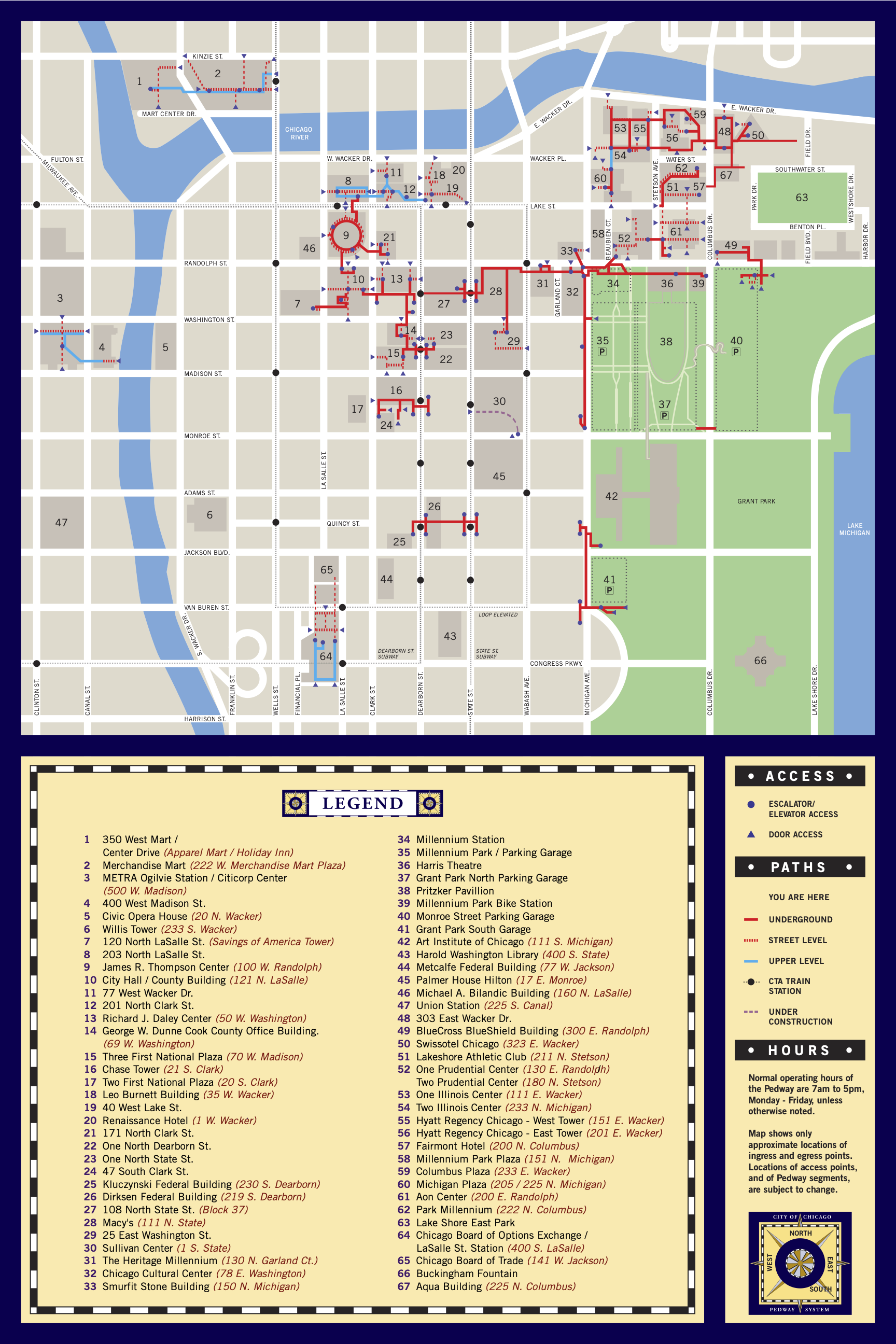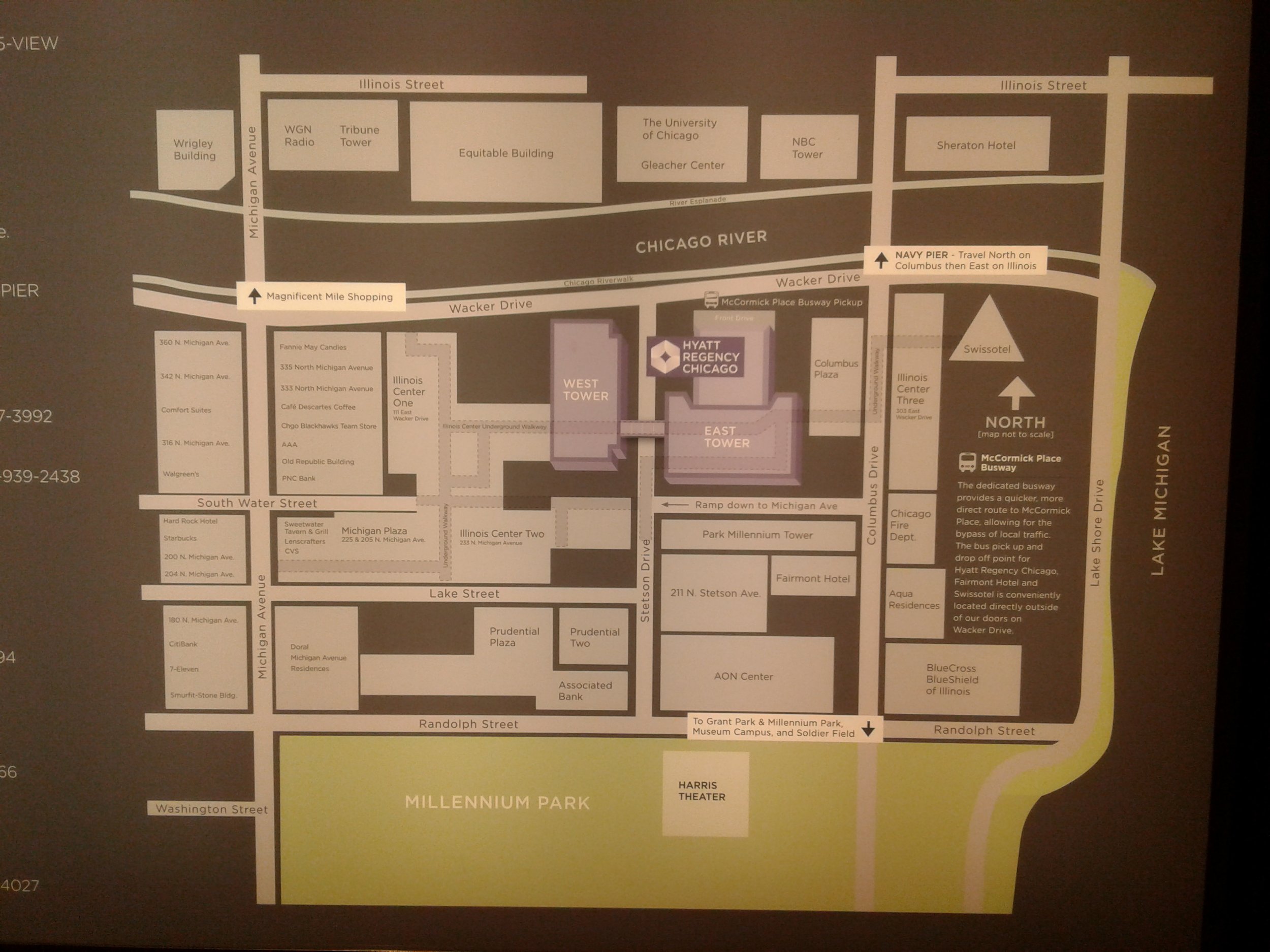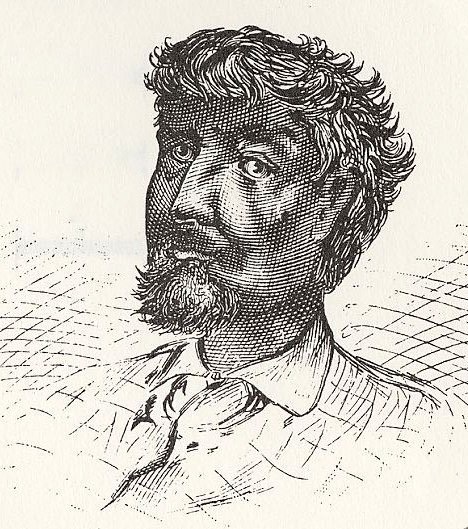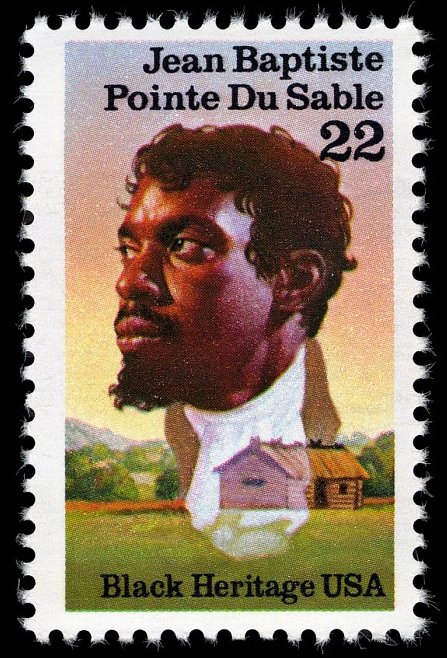Jean Baptiste Pointe DuSable was the pioneer credited as being the first non-native resident of what is now Chicago. He developed his property on the north bank of the Chicago River near the shores of Lake Michigan (ca. 1779)
In 1673 Father Jacques Marquette and Louis Joliet explored this region and noted it’s good location as a trade route through the Great Lakes to the Mississippi River.
DuSable was born (ca. 1745) in what was the French Carribean colony, now know as Haiti, to a woman of African descent and a French mariner. He was educated in France and came to the United States around the early 1770s to make his fortune. He entered the New World through the port at New Orleans and made his way up the Mississippi River to Illinois. It was there he married his wife Kitihawa, a Potowatomi woman. They built a house and raised their two children in the area which is now Chicago.
At the time, fur trading was big business. In 1627 The Company of New France was established in what is now Montreal, Canada, which setup operations to source furs from the new world.
During the American Revolution he was arrested by the British, and for a while imprisoned at Fort Mackinac in Michigan before returning to Chicago. DuSable was a neutral party and had been involved in peace negotiations with native tribes.
In addition to his native French, DuSable spoke English, Spanish, and several tribal languages, all of which served him well in his trading business. DuSable was a very successful. In 1800 he sold his property and moved down the Mississippi, ultimately to Missouri, where he spent his last days. In 1968 a historic marker was placed at his gravesite.
The DuSable cabin was featured in an exhibit at the 1933 World Fair in Chicago “Century of Progress,” where he was recognized as Chicago’s first permanent resident. He was officially recognized by the City as Chicago’s founder on March 1, 2006.











